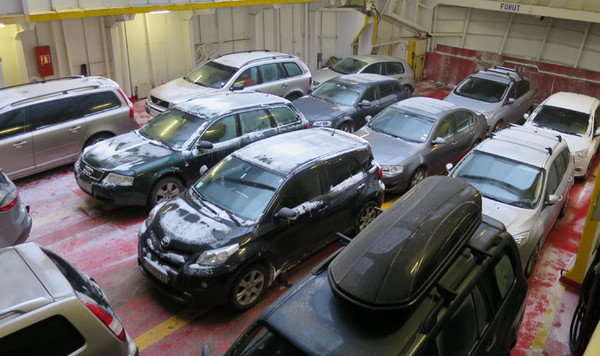Although fires are low in numbers, the potential catastrophic consequences from fires on ro-ro passenger vehicle decks and the alarming over-representation of fires noted by insurers on these vessels have prompted IUMI to issue a Position Paper.
Analysis of fires on ro-ro passenger vehicle decks clearly indicate that the main fire risk is not passengers/drivers or stowaways, as previously rumoured. Failure of electrical equipment is by far the most common cause. The single most frequent source of fires are reefer units. Electrical equipment on board, vehicle cabs and vehicle engines have also been identified as the source of several of these casualties. To improve the inherent risk of carrying vehicles on ro-ro tonnage, specifically lorries, time has perhaps now come for regulators, shippers and operators to address the way vehicles presented for carriage can be made safe.
Undeclared or misdeclared cargo is another fire hazard on board. IUMI has long been a supporter of improved screening and securing of cargo not only on these but also in other vessel segments.
And once a fire has started on a passenger vehicle deck, failure to deploy drencher systems has in some cases allowed fires to escalate. Quick response time and immediate action were also recognised as paramount in the Interferry Operation Best Practice Guidance relating to ro-ro deck fire safety that was issued in 2016.
Marine insurers welcome the initiative by the International Maritime Organization (IMO) to further review international regulation in view of minimising the incidence and consequences of fires on ro-ro spaces and special category spaces of ro-ro passenger vessels. An early output of this review is strongly encouraged.
IUMI is dedicated to offering support not only to regulatory bodies but also to all other stakeholders that are working to raise awareness and to mitigate this fire risk. As marine insurers, we recommend that owners and operators adhere to the Interferry best practice guidance, heed advice from classification societies and ensure compliance with regulations already in place to prevent these fires from occurring.
